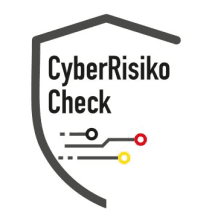What is Cross-Site Scripting (XSS)?
Cross-Site Scripting, abbreviated as XSS, is one of the most common vulnerabilities affecting web applications. In XSS, attackers exploit sites by injecting malicious scripts into content viewed by other users. These scripts can be written in various languages, most commonly in JavaScript.
Types of Cross-Site Scripting
There are several types of Cross-Site Scripting, each using different methods:
Reflected XSS
Reflected XSS occurs when user data is immediately embedded in the HTTP response without being cached or stored. This type of attack is often spread through malicious links.
Stored XSS
Stored XSS, also known as persistent XSS, saves the malicious data on the server. These scripts are delivered to multiple users every time the vulnerable page is viewed.
DOM-based XSS
DOM-based XSS occurs when the client-side code of the web application allows the execution of malicious scripts in the browser without requiring server interaction.
Risks of Cross-Site Scripting
The risks posed by XSS are significant, as attackers can access user information such as cookies, session IDs, and other sensitive information. Additionally, attackers can steal login credentials, inject malware, and redirect users to phishing websites.
Countermeasures Against Cross-Site Scripting
To protect your application from XSS attacks, you should take the following measures:
✔ Validate and sanitize inputs: Ensure that all user inputs are validated and sanitized before being integrated into the application. ✔ Use HTTP-Only and Secure Flags: Set HTTP-Only and Secure Flags on cookies to prevent them from being read by malicious scripts. ✔ Implement Content-Security-Policy (CSP): Employ a Content-Security-Policy to regulate which resources can be loaded or executed by a page.
Have Your Systems Tested for XSS Vulnerabilities
Regular security testing is essential to identify and resolve potential XSS vulnerabilities.
Related Terms and Further Topics
📌 Related Terms: Web Application Firewalls (WAF), vulnerabilities in web applications, security testing
Cross-Site Scripting is a serious security risk that can significantly compromise the integrity of web applications. By understanding the risks and implementing comprehensive security measures, organizations can better protect their web applications.
Cross-Site Scripting in Germany: Current Developments
The significance of cross-site scripting in Germany is continuously growing. According to current studies by the Federal Office for Information Security (BSI), German companies are increasingly affected by cyber threats. The Bitkom association reports that 84% of German companies have been victims of cyberattacks in the last two years.
Particularly in the area of cross-site scripting, the following trends are emerging:
Increasing investments in preventive security measures
Heightened awareness of holistic security concepts
Integration of cross-site scripting into existing compliance frameworks
EU Compliance and Cross-Site Scripting
With the introduction of the NIS2 Directive and tightened GDPR requirements, German companies must adapt their security strategies. Cross-Site Scripting plays a central role in fulfilling regulatory requirements.
Important compliance aspects:
Documentation of security measures
Regular review and update
Proof of effectiveness to supervisory authorities
Practical Implementation in Corporate Daily Life
The integration of cross-site scripting into corporate life requires a structured approach. Experience shows that companies benefit from a phased implementation that considers both technical and organizational aspects.
Think of cross-site scripting as an insurance policy for your company: The better prepared you are, the lower the risk of damage from security incidents.
Further Security Measures
For a comprehensive security strategy, you should combine cross-site scripting with other security measures:
Vulnerability Management - Systematic vulnerability management
Penetration Testing - Extensive security testing
Security Hardening - Employee awareness training
Incident Response Plan - Preparation for security incidents
Conclusion and Next Steps
Cross-Site Scripting is an essential component of modern cybersecurity. Investing in professional cross-site scripting measures pays off in the long term through increased security and compliance adherence.
Would you like to optimize your security strategy? Our experts are happy to assist you with the implementation of cross-site scripting and other security measures. Contact us for a free initial consultation.
🔒 Act now: Have your current security situation assessed by our experts
📞 Request a consultation: Schedule a free initial consultation for cross-site scripting
📋 Compliance Check: Review your current compliance situation
📌 Related Topics: Cybersecurity, IT security, compliance management, risk assessment
Best Practices for Cross-Site Scripting
The successful implementation of cross-site scripting requires a systematic approach. Based on our extensive experience in cybersecurity consulting, the following best practices have proven effective:
Strategic Planning
A well-thought-out strategy is the foundation for successful cross-site scripting. You should consider the following aspects:
Define clear objectives and success measurements
Involve stakeholders early and define responsibilities
Calculate realistic timelines and budgets
Conduct risk assessments and contingency planning
Technical Implementation
The technical implementation of cross-site scripting should be done step by step:
Analysis of the current situation: Evaluation of existing security measures
Gap analysis: Identification of areas for improvement
Pilot project: Test run in a limited area
Rollout: Gradual expansion to the whole company
Monitoring: Continuous monitoring and optimization
Common Challenges and Solutions
Similar challenges regularly arise during the implementation of cross-site scripting. Here are proven solutions:
Resistance to Change
Employees are often skeptical of new security measures. Successful change management strategies include:
Transparent communication about benefits and necessity
Training and continuing education measures
Involvement of opinion leaders as multipliers
Gradual introduction with quick wins
Budget Constraints
Limited resources require a prioritized approach:
ROI calculation for various measures
Phased implementation based on priorities
Utilization of synergies with existing systems
Consideration of compliance requirements
Measuring Success and KPIs
The success of cross-site scripting measures should be measurable. Relevant metrics include:
Quantitative Metrics
Number of identified and resolved vulnerabilities
Reduction in the average response time to security incidents
Improvement in compliance ratings
ROI of implemented security measures
Qualitative Assessments
Employee satisfaction and acceptance
Feedback from customers and partners
Assessment by external auditors
Reputation and trust in the market
Future Trends and Developments
The landscape of cybersecurity is continuously evolving. Current trends influencing cross-site scripting include:
Artificial Intelligence: AI-driven threat detection and mitigation
Zero Trust Architecture: Trust is not assumed but continuously verified
Cloud Security: Adaptation to hybrid and multi-cloud environments
IoT Security: Protection of connected devices and systems
Quantum Computing: Preparation for post-quantum cryptographic methods
Companies that invest in cross-site scripting today position themselves optimally for future challenges and opportunities.
Your Next Step
The implementation of cross-site scripting is an investment in the future of your company. Our experts will help you develop a tailored solution that meets your specific requirements.
Start today:
📞 Free Consultation: Schedule a non-binding conversation
📋 Security Assessment: Have your current security situation assessed
🎯 Tailored Solution: Development of an individual cross-site scripting strategy
🚀 Implementation: Professional execution with ongoing support
Contact us today and take the first step towards a safer digital future.




